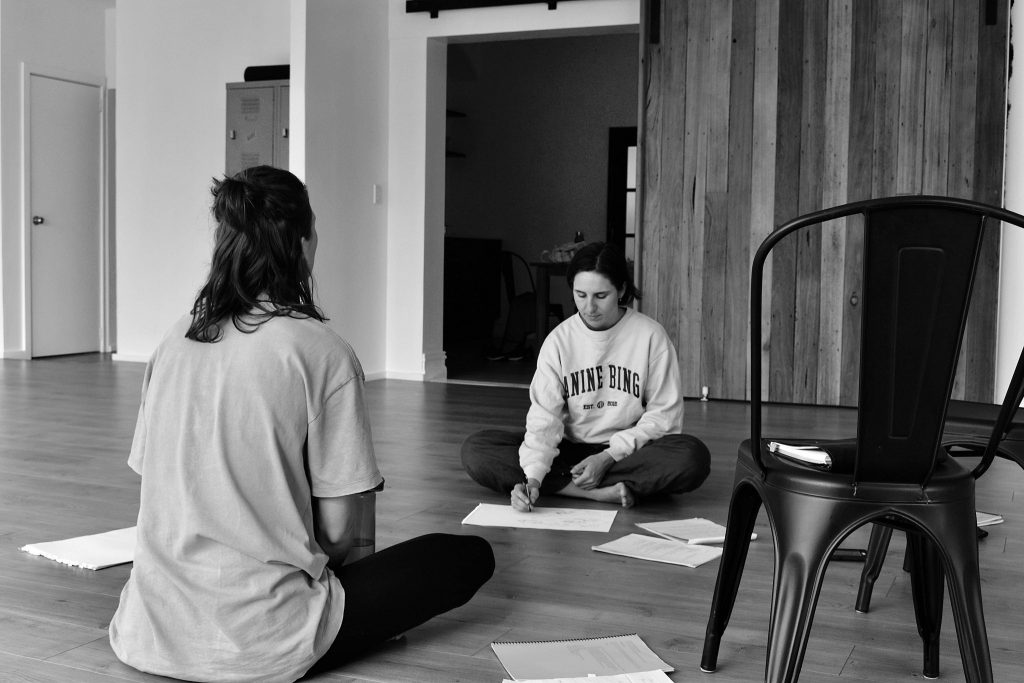
‘Canary’ // Melbourne Fringe Festival
‘Canary’ was defiant.
The term ‘fringe’ most often conjures up images of the world-renowned Edinburgh Fringe Festival and its home-grown cousin in Adelaide, yet it is important to remember that events such as these are not the ‘be all and end all’ of independent theatre.
Australia’s fringe theatre scene is an eclectic one. Each city boasts its own talent and stories, often culminating in pieces of art representative of it itself. In the case of Isabella Perversi’s one woman show ‘Canary’, it is for all intents and purposes a love letter to her hometown, Melbourne.
Much like the story Perversi conveys onstage, the Fringe Common Rooms, situated within Carlton’s historic Trades Hall, is the epitome of Melbournian culture. The small, wooden floored ballroom is neatly self-contained with a stage, bar, and several portable chairs. It feels a most befitting atmosphere to tell a Melbourne-based story – the room exudes artistry and a laid-back appeal in unison.
The quiet intimacy of the Common Room lends itself perfectly to Perversi’s storytelling, as if she were regaling her closest friends with a personal anecdote. Staged as a series of vignettes from the life of a single working woman in Melbourne, ‘Canary’ sheds light on the duplicitous nature of being a female in modern society. While ‘Canary’ is undoubtedly Perversi’s story, Emma Fawcett’s dramaturgical influence flows throughout impeccably. Fawcett demonstrates a keen understanding of contemporary femininity and the female-voiced narrative; which provides ‘Canary’ with shades of versatility. The theme of sexual liberation runs throughout the narrative with several examples and varying perspectives – within the workplace, out on the town, and as an outsider to her sister’s relationship.
Perversi presents a multifaceted consideration of female sexuality and vulnerability; she does not shy away from some tough topics like toxic masculinity and the pro-choice movement. Although Perversi’s all-consuming narrative can be intense at times, it is during the quieter, reflective notes that Perversi truly shines. A particularly poignant moment comes from a conversation she has with her sister at the climax of the show. Equal parts sad and empowering, Perversi demonstrates true calibre in her storytelling during such moments – they are made all the more impressive in remembering she is on the stage alone.
As with many single-person productions, effective storytelling is reliant just as much upon the visuals as the sole performance. In the case of ‘Canary’, the use of lighting and sound was imperative. Under the guidance of Lighting and Sound Designer, Gabriel Bethune, ‘Canary’ was established as intimate, yet communal. Bethune’s appreciation of Melbourne’s independent theatre scene was evident, favouring the use of warm lighting tones to reflect the city’s autumnal aesthetic. Recordings of other actors play throughout the show to establish conversation with Perversi. This tactic proved to be quite prudent in presenting a two-sided narrative to the audience, if also at times jarring in its presentation as a one-woman show. Nevertheless, Bethune’s lighting and sound choices were well-conceived, allowing for an intriguing additional layer of storytelling.
With nothing else accompanying Perversi on stage, except for a single chair and several pieces of crumpled up paper, the use of imagined visuals are paramount in ‘Canary’. Perversi’s engagement with the chair as her (for the most part) sole prop was intriguing. Several moments appeared reminiscent of a young child playing make believe with an inanimate object after school. The refreshingly simple set and prop use emphasised the power independent theatre can truly have in inviting audiences to ‘make believe’ too.
While ‘Canary’ is a one-woman show, Perversi’s partnership with director Emma Gough is pronounced. Serving as Gough and Perversi’s second director-actor outing after 2021’s Green Room Award nominated ‘Ember’, they showcase a dynamic understanding of cued delivery and effective storytelling in ‘Canary’. It is inherently difficult to occupy a full stage as a lone performer. Gough’s blocking overcomes this by establishing different stage sections as representative of particular locations. Audiences gain a sense of the trust Gough and Perversi have in one another through the coherent orchestration of the narrative. Their analysis of what it means to be a woman in modern society is unified, making it all the stronger. ‘Canary’s’ empowered storytelling is undeniably achieved both on the stage and behind it.
Fringe performances are an integral part of any city’s theatre scene, with Melbourne being no exception. Isabella Perversi’s one-woman show ‘Canary’ seeks to tell a story that is equal parts intimate and unifying. In exploring what it means to be a woman in modern-day Melbourne, Perversi presents a confronting, topical show which is bound to get audiences contemplating. ‘Canary’ is a prime example of what fringe theatre can and should be – a love letter to performing at its rawest simplicity – and for that we can all be grateful.
‘Canary’ performed until Saturday, 5 March 2022 at the Fringe Common Rooms in Carlton’s Trades Hall. For more information about this or other Melbourne Fringe shows, or to purchase tickets, visit their website.








